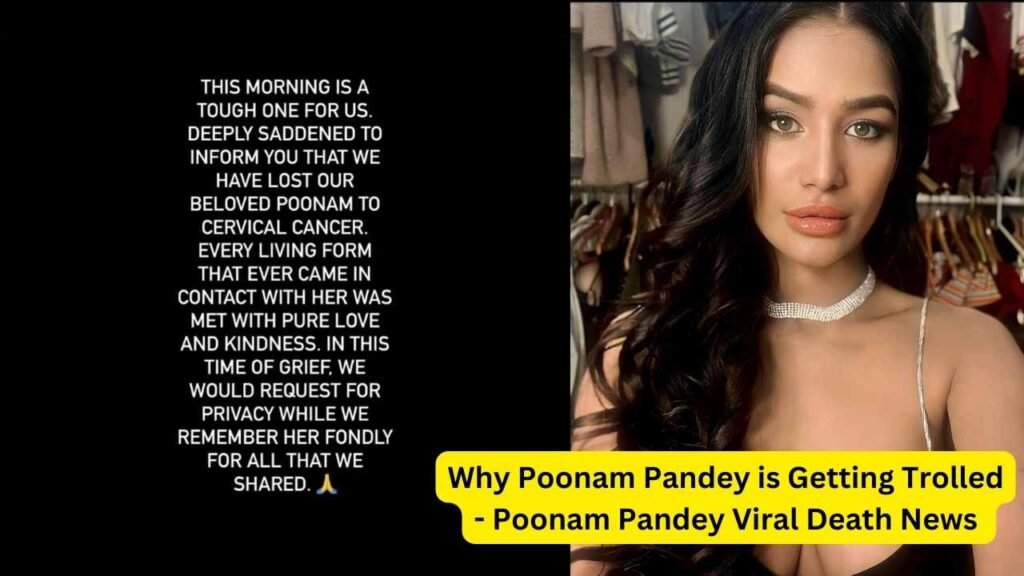In the age of social media, where information spreads like wildfire, it’s not uncommon for hoaxes and fake news to gain traction. Recently, Indian model and actress Poonam Pandey found herself at the center of a bizarre controversy when rumors of her death began circulating online. What started as a misguided attempt to raise awareness about cervical cancer quickly turned into a viral meme, leaving her in a perplexing situation.
Who is Poonam Pandey?
Poonam Pandey is an Indian model, actress, and internet personality who gained fame for her bold and provocative image. She first gained public attention when she promised to strip naked if the Indian cricket team won the Cricket World Cup in 2011. While she didn’t fulfill this promise due to legal issues, it catapulted her into the spotlight.
She has since appeared in various modeling assignments, music videos, and films. She’s known for her risqué photoshoots and outspoken nature, often making headlines for her controversial statements and actions. Despite facing criticism and backlash, Poonam Pandey has maintained a significant presence on social media platforms, where she interacts with her followers and shares updates about her life and career.
While she has dabbled in acting with appearances in Bollywood films and web series, Poonam Pandey is perhaps best known for her persona as an internet sensation, using her popularity to stay relevant in the entertainment industry.

Most Recent Controversy of Poonam Pandey
Poonam Pandey, known for her bold persona and controversial antics, decided to take an unconventional approach to raise awareness about cervical cancer, a disease that affects millions of women worldwide. In a move that was intended to shock and grab attention, Pandey orchestrated a fake news story announcing her untimely demise due to cervical cancer complications. However, what she didn’t anticipate was the overwhelmingly negative response and the emergence of memes mocking the incident.
The initial intention behind her stunt was noble – to shed light on a critical health issue and encourage women to prioritize their health by getting regular screenings for cervical cancer. Cervical cancer is a highly preventable disease, yet it remains a significant health concern, particularly in developing countries where access to healthcare services may be limited.
By using her platform to spark conversations about cervical cancer, she hoped to make a meaningful impact and save lives.
However, the execution of her plan backfired spectacularly. Instead of generating awareness and starting important conversations, her fake death news became fodder for internet trolls and meme creators. Social media platforms were flooded with jokes and memes poking fun at her supposed demise, overshadowing the intended message and turning the entire ordeal into a spectacle.
In a statement addressing the controversy, she expressed her disappointment at being trolled and emphasized that she did not need publicity. She clarified that her intention was solely to raise awareness about cervical cancer and urged people to take the disease seriously.
Despite her efforts to clarify the situation, the memes and jokes continued unabated, perpetuating the cycle of misinformation and trivializing the issue at hand.
The incident serves as a cautionary tale about the power and pitfalls of social media activism. While the internet can be a valuable tool for raising awareness and mobilizing communities, it can also amplify misunderstandings and distractions.




